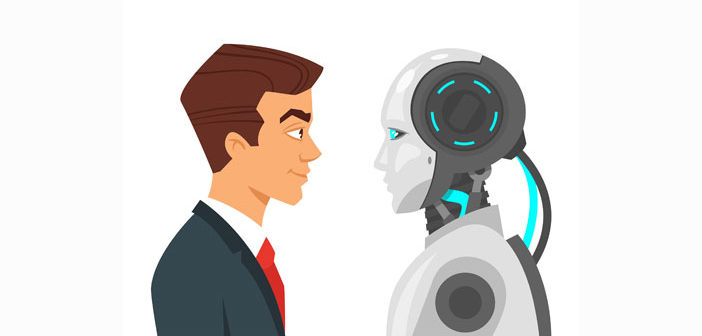Machine learning is a branch of computer science that can be considered a close relative of artificial intelligence.
The branch is very broad and the different techniques of learning and developing algorithms in turn give rise to as many possibilities of use that widen the field, blurring the possibility of giving a specific definition.
However, we can talk about mechanisms that allow an intelligent machine to improve its capabilities and performance over time.
In this way, the machine will be able to learn to perform certain tasks by improving their skills, their answers and their functions through experience.
Talking about machine learning today is quite simple, but the road to get here has been decidedly complex and the first intelligent machines date back to the early 1950s.
Surely the father of this type of discipline is Alan Turing, or the one who hypothesized the need to create specific algorithms to make machines in degrees of learning.
Since the eighties, then, thanks to a large number of investments in the sector, a renaissance continued in the nineties with a series of innovative techniques linked to statistical and probabilistic elements.
Today this automatic learning finds application in everyday life: think only of the fact that, for example, Facebook submits you posts, news and advertising according to your interests (learning from what you write and share on its platform) or Spotify that offers you the music you like based on what you’ve already listened to or avoided. Or Google, which presents you lists of results based on the research you do but which takes into account which sites you have visited, which pages you have read and how you behaved in browsing on the internet up to that point.
What about speech recognition? Or all the applications that are used in home automation up to unmanned cars.
Here, the automatic learning applied to the automotive is defined as a reinforcement learning system. The most complex part of the subject that requires the machine to be equipped with systems and tools capable of improving its own learning and understanding the characteristics of the surrounding environment.
The machine is supplied with a series of support elements such as sensors, video cameras and GPS to detect what is happening in the surrounding environment and therefore to make choices for a better adaptation to the environment around them.
In recent years, research has made great strides, but a lot still needs to be done to perfect machine learning.
The ethical problem that arises is different, that is the big question: but then will machines be replaced in every way by the human being?
From the University of Washington is professor Pedro Domingos who reassures us: fear does not exist. “People are afraid that computers will become too intelligent and dominate the world, but the real problem is that even though they are still too stupid, they have already conquered it.”



